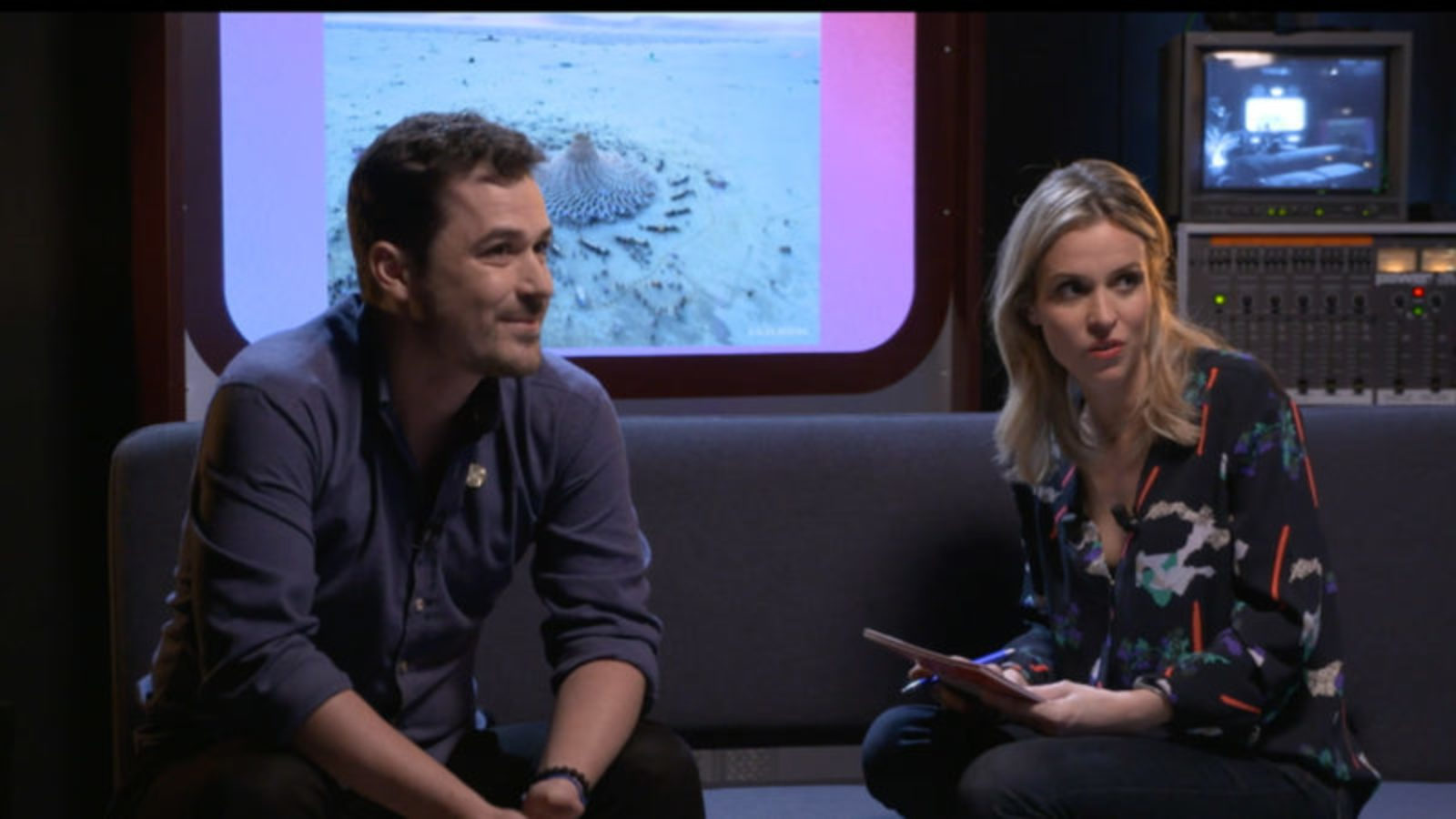
Rotate your tablet
for a better experience


Rotate your tablet
for a better experience

In the latest edition of our talk show The Final Countdown, we had the chance to chat to this architect who thinks beyond the box.
Arthur Mamou-Mani is a French-born, London-based architect who specializes in a new kind of digitally designed and constructed architecture. Based in London, he’s known for his parametric constructions.
It was a very large project – about 60 meters wide and 20 meters high – and it was all built by volunteers. And they all showed up because we all were keen to build a temple for our time, a sort of spiritual space without any religion. And it was of course inspired by space and the galaxies; many temples were inspired by celestial bodies and I thought it was interesting to push it to our current knowledge of science: black holes, the bending of space-time …
The project was a journey, I don’t think that the fact of it being here built was what mattered. The whole energy of building this together, the process and the dream behind being able to achieve such an amazing project … I say this, but compared to a space rocket, it’s probably nothing (laughter). It was just a real journey of dreaming together. So, when we burnt it, we knew that we were ready for the next step. It was full of people putting offerings inside, there was a really beautiful emotion of people wanting to let go of something, whatever that was, some things symbolic or an actual thing they wanted to let go of. So when we burnt it, we were all in silence, about 70,000 people around this sort of giant camp fire, and we just could hear the cracking and people were crying. There was a real emotional and genuine spiritual thing going on.
Very important! The idea of the gift economy that you mentioned is the idea that we should think of it less in transactional terms and maybe more relational terms. Maybe it’s ok to give and not always think of the value of things […]. For example, I teach all the time. I love to explain things, I love to empower people so that they feel that it’s possible to do it themselves as well. There’s also radical self-reliance, the idea that we’re in charge, that we can make things, that we can change things. Those are really beautiful and relevant concepts.
There’s something fascinating about not fully knowing what’s out there. That’s where spirituality starts, in a sense. What is out there? It’s just so far! It creates this amazing capacity for whoever is by nature a dreamer (laughter). […] I’m a dreamer, but I was sort of forced to become a bit more pragmatic. As soon as I encountered Burning Man and building in a desert!
It’s at the basis of not designing something that doesn’t feel natural. We try to grow things from parameters. Instead of drawing something, we let it emerge from how materials behave, how the environmental wants a space to be, from structural parameters, from the sheer connection details. So that whatever you draw emerges from all these constraints. Throughout and from just purely whimsical gestures.
When you work with architecture, you work a lot with dreams, and you tell a lot of stories. You make people believe that something is a space more than just two pieces of wood connected together. I think that’s extremely important. We lost a little bit of this with pure modernism and “form follows function”. I think there’s a dream-like dimension and a storytelling part of my job.
Now that we’re talking about space, going out there and discovering new planets, that would be phenomenal! As a maker, to build new structures. Can you imagine a structure without the same gravity as Earth’s? Architects and gravity go hand in hand. What if suddenly that changed? What sort of structures would we build if there were less gravity?